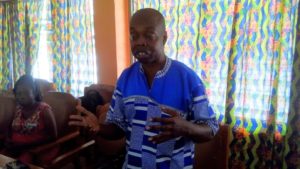No child should die waiting in the queue – Paediatrician

Dr Patrick Atobrah, Paediatrician and Medical Director of the Regional Hospital in Bolgatanga, has called on health professionals to immediately render medical care to patients, especially children who are critically ill.
He said critically ill children should never be delayed in queues or rushed to the consulting room without proper assessment, urging health professionals to always heed to the basics and act as soon as possible in emergencies.
He also called for emergency preparedness at all health facilities and entreated nurses to always ensure that emergency drugs were in stock.
Dr Atobrah was addressing health professionals from various health facilities in the region at a four-day Emergency Triage Assessment and Treatment (ETAT) workshop in Bolgatanga.
He encouraged participants not to waste time looking for a doctor in emergency cases but commence medical care immediately before calling on a doctor.
He stated that it was inappropriate to keep severe malnourished children waiting for a nutritionist or doctor to review a case.
Dr. Atobrah advised all health facilities to make efforts at getting blood in stock for emergency cases by organising blood donation exercises.
He entreated health care providers to inculcate in themselves the habit of reading various treatment protocols at their wards and facilities so as to be abreast with the changing treatment trends.
Dr Ed Sheridan, a paediatrician at Southampton University Hospital in the United Kingdom (UK), took participants through the triaging process.
He explained that triaging was sorting out patients into priority groups according to their needs and resources available.
He said patients should be categorised into an order of emergency, priority and non-urgent and managed accordingly.
He also called on nurses to always assess the breathing pattern of children and neonates as part of the triaging process and make use of available resources in managing emergencies.
Madam Esther Ali, a paediatric nurse at the regional hospital, said ETAT was knowledge that every nurse must acquire to effectively care for children.
“We all need it and must seize every opportunity to build our capacity and dispense duty without deficit of knowledge,” she said.
Madam Ali implored nurses, especially those in paediatric wards, to consider that children were vulnerable and their care was special in every presenting health problem.
The workshop was a partnership between the Ghana Health Service, Afrikids International, a Non-Governmental Organisation, and Southampton University Hospital, UK.
Participants at the end of the training were awarded certificates.
Source: GNA
